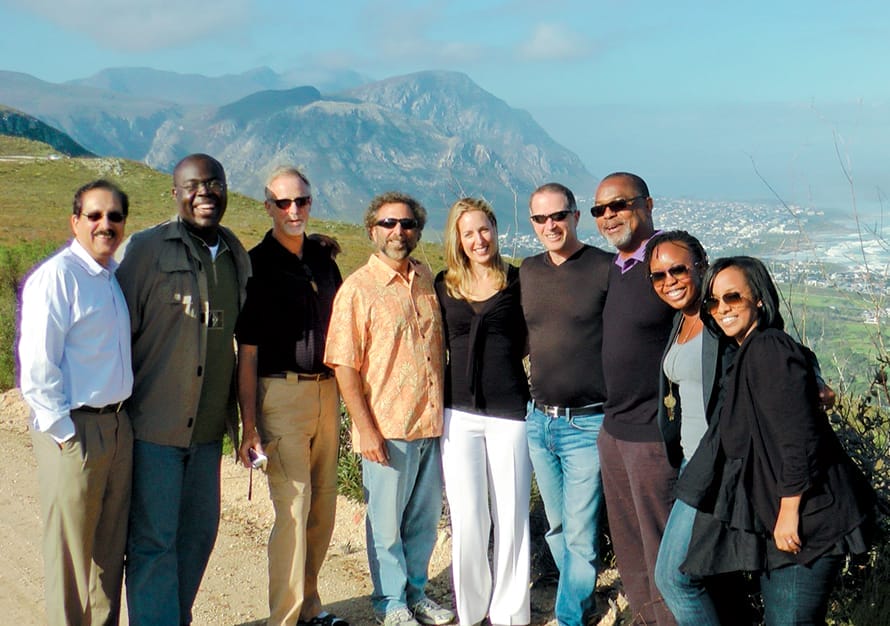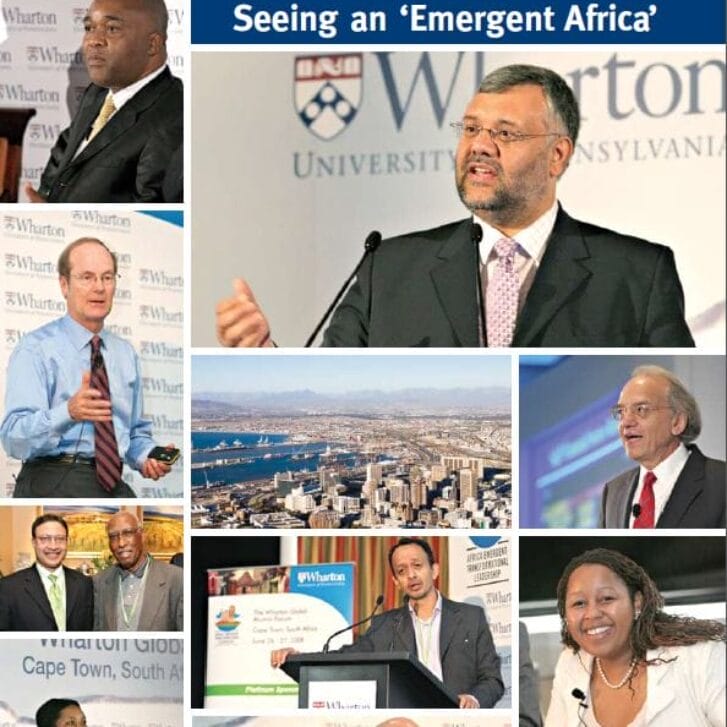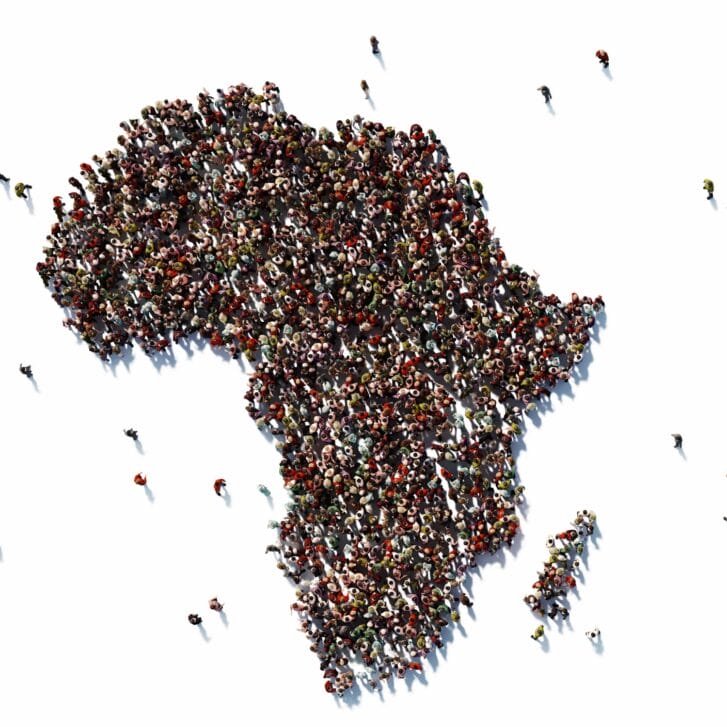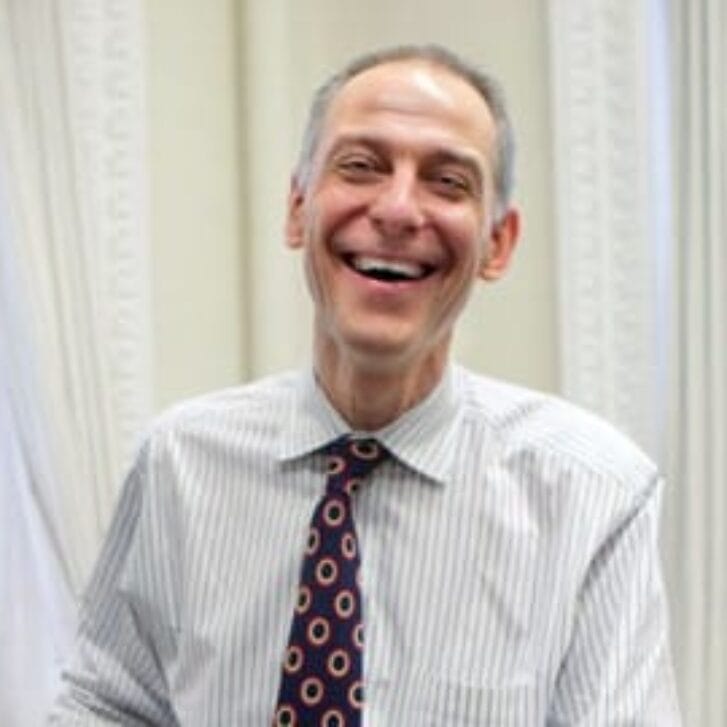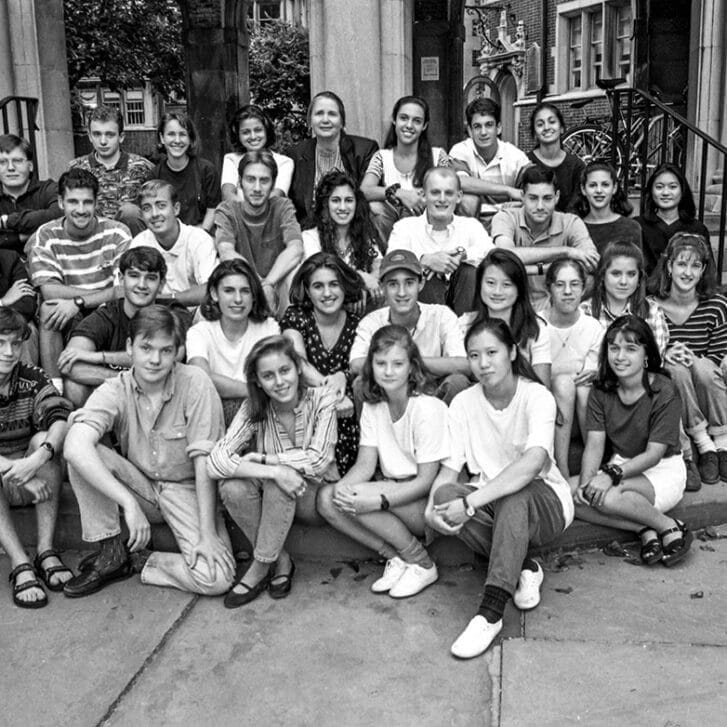In July and August 2011, a team of Wharton faculty visited Kenya and South Africa to learn how Africa is evolving within the global economy. They gained precious insight from local entrepreneurs and alumni.
The group was in Africa as part of Wharton’s Faculty International Seminar (FIS), which takes groups of faculty to selected countries to experience business issues related to their research and teaching.
The professors spent 12 days meeting with business and political leaders across various sectors in Johannesburg, Cape Town and Nairobi. leading the eight-member delegation were Ziv Katalan, director of Wharton global initiatives and adjunct professor of operations and information management, and Harbir Singh, the Mack Professor of Management and vice dean for global initiatives.
“My take on the seminars is that they’re Wharton’s R&D for intellectual capital, which is what drives any business school,” Katalan says. “They’re about making sure that our faculty has firsthand exposure to the regions and countries where change is happening.”
This visit is expected to lead to new research problems and partnerships and provide the faculty with exposure to the business culture, issues and leaders of Kenya and South Africa.
Wharton students and faculty have increasingly come to look toward Africa in general, with such projects and activities as the Wharton Africa Business forum. Held Nov. 4–6, 2011, the 19th annual forum increased dialogue on business in Africa by engaging companies, prominent business professionals, investors interested in the region and leaders of academic thought.
In addition to Katalan and Singh, other participating faculty members on the FIS trip included Jonah Berger, James g. Campbell assistant Professor of Marketing; Martine Haas, associate professor of management; Shawndra Hill, assistant professor of operations and information management; Stephen Hoch, Laura and John J. Pomerantz Professor in Marketing; David Reibstein, William Stewart Woodside Professor and professor of marketing; and Kenneth Shropshire, David w. Hauck Professor and professor of legal studies and business ethics.
“We saw a whole host of companies of different sizes and areas— everything from shampoo factories to call centers to cigarette companies to tourism,” explains Berger, who was visiting Africa for the first time. They met with people at all levels—CEOs, CFOs and entrepreneurs who had crafted unique solutions and business models and who had worked to be innovators and leaders in their respective industries. Hill, who has taught a doctoral class at Addis Adaba University in Ethiopia for three years, says the highlight of the trip was witnessing the wide use in Kenya of m-pesa, a mobile banking solution by Safaricom.
“The success and wide adoption of m-pesa highlights the fact that we can’t always fit our western solutions to the continent,” she says. “There may be more innovative solutions that have the potential to enable a larger number of consumers to participate in business.”
Contrasts and Opportunities
The range of meetings provided contrasting perspectives on all sectors of the economies. On one day, they met Atul Shah, managing director of Nakumatt Holdings, a Nairobi based retailer tapping the underserved formal retail market in east Africa. Inspired by unmet demand for world-class retail products and services, the company utilizes sophisticated supply chains and information technology in its 33 branches across the region.
Shah believes that, although Wal-Mart has entered the region, the current east African market of 140 million people has an opportunity to sustain at least 10 major retail stores in each town.
In another meeting, faculty learned about a Kenyan company that distributes solar lamps in partnership with women in Kenya’s shanty towns. Typically, residents burn kerosene at night, which is neither environmentally friendly nor cost-effective, because these areas don’t have much electricity, Berger says.
“The women who distribute [the solar lamps] get a portion of the proceeds as entrepreneurs, and the whole community and environment benefits more broadly,” the marketing professor says.
Opportunity in Africa
The extensive agenda was planned with the help of Eric Kacou, WG’04, and Rose (Ndindiri) Thiga, WG’11. The previous school year, Thiga, a corporate development professional with Ametek Inc., co-led the first student Career trek to South Africa.
She used the groundwork for FIS, helping to create a packed schedule that went smoothly, despite infrastructure issues that led to large chunks of time in Kenya’s snarled traffic. “
African challenges can sometimes seem daunting and insurmountable. However, therein lies the opportunity,” Thiga notes.
Alumni participation extended to regional gatherings, including a Johannesburg event co-sponsored with the MBA admissions office, attracting 20 alumni. Adil Popat, WG’84, CEO of Simba Corp., and Anthony Hamilton-Russell, WG’90, proprietor of Hamilton Russell Vineyards, also met with the FIS group.
Outcomes in Curricula and Research
Lessons learned from the FIS experience make their way directly to Wharton students as faculty introduce global content into discussion and develop new curricula.
“Last year in June, the faculty had good exposure to the energy sector in Brazil,” Katalan says. “So we followed up with a global Modular Course on energy and infrastructure in Brazil using what we had learned.”
FIS was founded in the late 1980s with visits to Japan and Korea. After a hiatus, Singh and Jeff Sheehan, associate dean for international relations, relaunched the program in September 2008.
“The immediate goal is to foster new research related to these companies and businesses. The second goal is to influence the curriculum—we’re looking for opportunities to add globalization at Wharton,” FIS Director Katalan says.
Recent FIS teams have visited China, Vietnam, Cambodia, Brazil and India. A trip to Japan will take place next year.




















